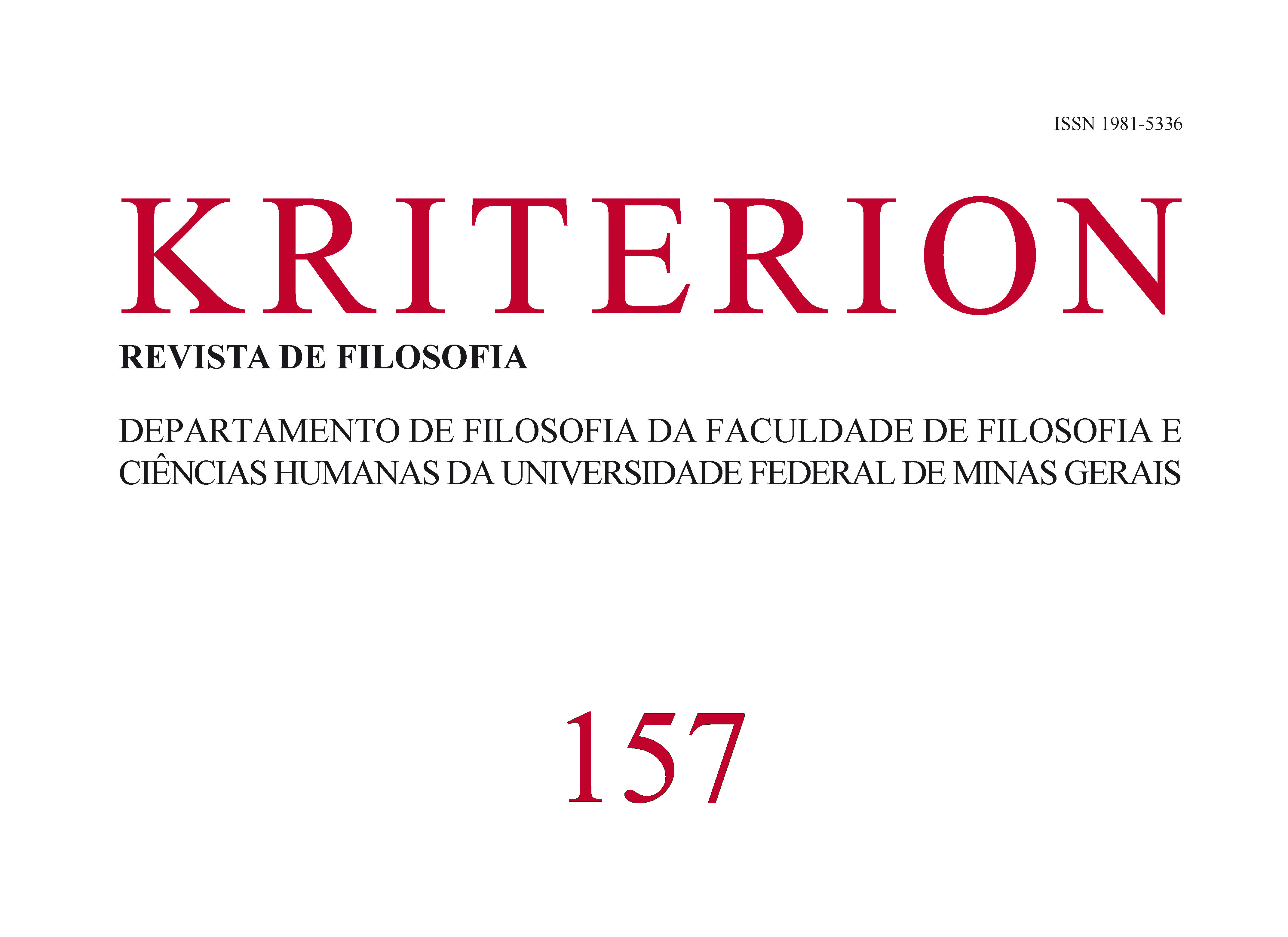THE ROLE OF EXTERNALISM IN UNSAFE BUT RATIONAL REASONING
Palabras clave:
Externalism, Concepts, Rationality, Transitive inferenceResumen
Faria’s recent publication aims to show that “if antiindividualism
is correct, then the obscurity of validity is more widespread than
we need to assume for present purposes.” In rejecting “a variety of exculpating
moves, designed to shield the rationality of the possibly unlucky reasoner,” Faria
suggests that content externalism can drastically affect our self-understanding
as rational beings. I am afraid I have to disagree. Faria overintellectualizes
reasoning, always performed from the first-person perspective and is subject
to reflexive control by the reasoner. To be sure, content externalism shows that
sound reasoning is contingent on the broad environment and therefore does not
depend exclusively on the logical abilities of the living being but is a matter of
logical luck. Nonetheless, content externalism is no threat to rationality. My
diagnosis: By adopting Wittgenstein’s strategy of “bringing words back home,” Faria overlooks the achievements of cognitive science: in its simplest form,
“transitive inference,” rationality pervades the animal kingdom.
Descargas
Citas
ANDREWS, K. “How to Study Animal Minds”. Cambridge University Press, 2020.
BACH, K. “Thought and reference”. New York: Clarendon Press, 1987.
BERNECKER, S. “Self-Knowledge and Closure.” In: P. Ludlow, N. Martin (eds.). Externalism and Self-Knowledge. Stanford: CSLI Publications, 1998. pp. 333-347.
BOGHOSSIAN, P. “Externalism and inference.” Philosophical Issues, 2, 1992, pp. 11-28.https://doi.org/10.2307/1522852.
______. “Further Thoughts on the Transparency of mental content.” In: S. C. Goldberg (ed.). Externalism, self-knowledge, and skepticism, new essays. Cambridge: Cambridge University Press, 2015. pp. 95-97.
______. “The transparency of mental content revisited.” Philosophical Studies, Vol. 155, Nr. 3, 2011, pp. 457-465. https://doi. org/10.1007/s11098-010-9611-3.
______. “The transparency of mental content.” Philosophical Perspectives, 8, 1994, pp. 33-50. https://doi.org/10.2307/2214162.
______. “What is inference?”. Philosophical Studies, Vol. 169, Nr. 1, 2012, pp. 1-18. https://doi.org/10.1007/s11098-012-9903-x.
BURGE, T. “Individualism and Self-Knowledge.” Journal of Philosophy, Vol. 85, Nr. 7, 1988, pp. 339-362.
______. “Individualism and the mental.” Midwest Studies in Philosophy, Vol. 4, Nr. 1, 1979, pp. 73-122.
______. “Memory and self-knowledge.” In: P. Ludlow, N. Martin (eds.). Externalism and self-knowledge. CSLI, 1998. pp. 111-127.
CAMP JR., J. L. “Confusion: a Study in the Theory of Knowledge”. Cambridge, MA: Harvard University Press, 2002.
FARIA, P. “Memory as acquaintance with the past: Some Lessons from Russell, 1912-1914”. Kriterion: Revista de Filosofia, Vol. 51, Nr. 121, 2010, pp. 149-172.
______. “Unsafe reasoning: A survey.” Dois Pontos, Vol. 6, Nr. 2, 2009, pp. 185-220.
______. Time, Thought, and Vulnerability. An Inquiry in Cognitive Dynamics. The Juan Larreta Lectures. Ciudad Autónoma de Buenos Aires: SADAF, 2021.
GARMENDIA, M. E. “Externalism, rational explanation, identity premises.” Teorema, Vol. XXXIII, Nr. 3, 2014, pp. 31-48.
KAPLAN, D. “Externalism and self-knowledge.” In: The Oxford Handbook of Epistemology. Oxford University Press, 2010. pp. 206-225.
LUDLOW, P. “Externalism, Self-Knowledge, and the Prevalence of Slow Switching.” Analysis, Vol. 55, Nr. 1, 1995, pp. 45-49.
______. “First-person authority and memory.” In: M. De Caro (ed.). Interpretations and Causes: New Perspectives on Donald Davidson’s Philosophy. Kluwer Academic Publishers, 1999.
MCKINSEY, M. “Anti-individualism and privileged access.” Analysis, Vol. 51, Nr. 1, 1991, pp. 9-16.
______. “Forms of externalism and privileged access.” Philosophical Perspectives, 16(s16), 2002, pp. 199-224.
______. “Skepticism and content externalism.” Stanford Encyclopedia of Philosophy, 2018.
PUTNAM, H. H. “The meaning of ‘meaning’.” Minnesota Studies in the Philosophy of Science, 7, 1975, pp. 131-193.
RECANATI, F. Mental files. Oxford, UK: Oxford University Press, 2012.
SAINSBURY, R. M., TYE, M. “Counting concepts: Responses to Paul Boghossian.” In: S. C. Goldberg (ed.). Externalism, Self-knowledge and skepticism, new essays. Cambridge: Cambridge University Press, 2015. pp. 113-119. https://doi.org/10.1017/CBO9781107478152.
SAINSBURY, R. M., TYE, M. Seven puzzles of thought. New York: Oxford University Press, 2012.
SEARLE, J. R. “Consciousness, unconsciousness and intentionality.” Philosophical Issues, 1, 1991, pp. 45-66.
SØRENSEN, R. A. “Logical luck.” The Philosophical Quarterly, Vol. 48, Nr. 192, 1998, pp. 319-334. https://doi.org/10.1111/1467-9213.
TIBBETTS, E. A. et al. “Transitive inference in Polistes paper wasps.” Biology Letters, Vol. 15, Nr. 5, 2019.
TYE, M. “Externalism and memory.” Proceedings of the Aristotelian Society, Supplementary Volume, Vol. 72, Nr. 1, 1998, pp. 77-94.
WILLIAMSON, T. “Knowledge and Its Limits”. Oxford: Oxford University Press, 2000.
Descargas
Publicado
Cómo citar
Número
Sección
Licencia
Derechos de autor 2024 Revista Kriterion

Esta obra está bajo una licencia internacional Creative Commons Atribución 4.0.










